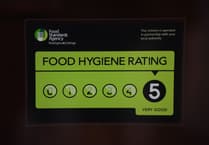Justin Haque, of Start, Slapton, writes: Follaton House (South Hams Council) is awash with expensive consultants attempting to implement their Connect Programme that eventually merges South Hams Council with the West Devon Council based in Tavistock. Councillors approved this questionable programme more than a year ago, but already any potential savings that have accrued have been more than spent on the widespread use of consultants to implement this programme and the council's decision, in the light of the 24 per cent targeted job cuts, to only appoint consultants where normal jobs were held previously. Aside from the destruction of staff morale at South Hams, how this merger could have taken place in the first place needs to be seriously questioned. West Devon's service to 53,800 urban residents living around Tavistock compares to South Hams, which looks after 83,500 residents living in a much larger rural area. In short, the demands of these two very different populations are extremely different and while the councils say they share services to derive costs savings, these are very easily challenged on multiple levels as the demographics simply do not overlap. The cost of implementation is £4.85m, with combined savings predicted to be £3m per year for the combined councils by 2018. However, when set against a private-sector equivalent comparison, the cost-to-benefit analysis based on total budgets is at best poor. South Hams Council's annual spending budget of £43m coupled to that of West Devon's £27m means a 14.4 per cent cost will generate combined savings of 4.2 per cent. In the private sector, this would not even be considered. Similarly, the potential revenue differential of South Hams versus West Devon from the collection of council tax means that West Devon benefits disproportionately at the cost of South Hams residents. There is nothing like the differences in income to make two parties squabble, resulting in less decisions and a poorer service. Finally, on an operating level, the assumed cost reductions and the plan for an 'agile working practice' means that those people who remain in the combined behemoth will have to share a desk in two locations and it assumes that one-third of the workforce will work 'out' in the field. You certainly do not need to be a paid consultant to realise a centralised local government office such as Follaton House cannot function in this way. No decisions will be made because people will simply be too dispersed, covering too many differing sets of differing needs. One can only assume that departed South Hams CEO Richard Sheard left because he realised what an absolute potential disaster this plan is. What amazes me further is that the majority of South Hams' district councillors willingly put their signatures to this ludicrous plan, which will cost even more money to unwind when they realise that it does not work.



